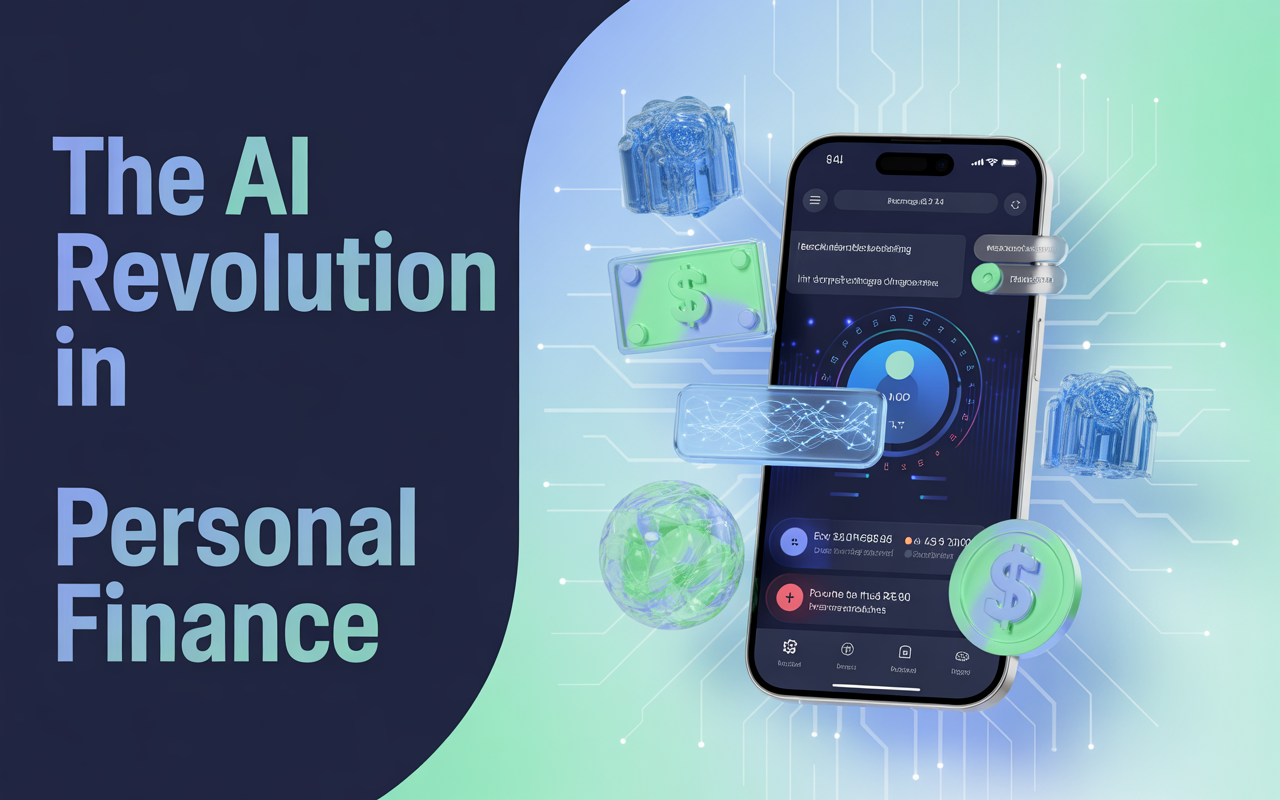
As we step into the third decade of the 21st century, the landscape of personal finance is undergoing a seismic shift, driven largely by the integration of artificial intelligence into everyday financial management.
The age-old struggles with budgeting, saving, and investing have been radically transformed, presenting new opportunities for individuals who may not have had access to extensive financial knowledge or resources.
This article explores how AI is revolutionizing budgeting and investing, offering insights that were once the exclusive domain of professional financial advisors. It emphasizes that AI is not merely a tool, but a companion that empowers individuals to take charge of their finances.
One of the most significant benefits AI brings to personal finance is in the realm of budgeting.
Traditional budgeting methods often require meticulous recordkeeping and can be overwhelming, leading many people to abandon them before seeing results.
However, AI simplifies this process by automating data collection and analysis.
Personal finance apps powered by AI can seamlessly link to bank accounts and credit cards, aggregating spending data in real-time.
These apps analyze spending patterns and offer tailored recommendations, enabling users to create budgets that reflect their income and spending habits without the daunting task of manual entry.
For instance, an AI-driven budgeting tool might suggest specific spending limits for different categories based on previous behavior, adjusting these recommendations as income fluctuates or as expenses increase.
This adaptability significantly reduces the cognitive load required to manage finances, making budgeting approachable for everyone, from students to retirees.
Investing represents another sphere where AI has made profound inroads.
Traditionally, investing was often relegated to those who could afford to pay hefty fees to financial specialists.
Now, with AI at the helm, the investment landscape is more democratized.
Robo-advisors have emerged as a popular choice, offering algorithm-driven investment recommendations that require minimal human interaction.
These platforms utilize complex algorithms to analyze vast amounts of market data, assess risk tolerance, and position funds accordingly.
What’s particularly noteworthy is that these AI systems are not static.
Continual learning algorithms allow them to adapt to changing market conditions, reassessing and reallocating assets as necessary.
This dynamic approach can lead to more optimized investment portfolios that are tailored to individual goals, whether they be aggressive growth or conservative income.
Furthermore, AI enhances the investing experience by providing accessible educational resources.
Many platforms offer user-friendly tutorials and tools that assist investors in grasping complex concepts, thereby fostering a new generation of financially savvy individuals.
By enhancing financial literacy through direct engagement, these AI tools ensure that users not only participate in investing but are also informed decision-makers in their financial journey.
AI also excels in overcoming some of the psychological barriers associated with personal finance. It is well documented that emotional decision-making can lead to poor financial outcomes.
AI, with its data-driven insights, removes much of this emotional volatility by providing a rational basis for financial decisions.
For example, AI tools can notify users when they are about to overspend based on predictive analytics derived from their spending habits.
This proactive approach serves as a virtual financial coach, alerting individuals before they stray from their established budget.
In addition to budgeting and investing, AI can aid in navigating everyday financial decisions.
Many people find it challenging to track their overall financial health and make informed decisions regarding their bills, savings, and investment opportunities.
AI assists users in monitoring financial health through comprehensive dashboards that aggregate all financial information into a single view.
Users can see their net worth, savings progress, and investment performance in real-time instead of piecing together information from various accounts.
This holistic view empowers individuals with information that was once cumbersome to collate and analyze.
The ease of access to financial data means users can spot trends and patterns that could impact their financial future.
Such insights might prompt a reevaluation of how much to save for emergencies, how to modify spending habits to boost savings, or even when to make significant life decisions such as purchasing a home or planning a vacation.
Moreover, as AI continues to evolve, its ability to provide personalized financial advice based on unique circumstances improves significantly.
Machine learning algorithms analyze user data to anticipate future needs.
For example, if a user consistently spends more on groceries when the seasons change, an AI-backed application can help budget more effectively for those months, ensuring that the user is prepared for fluctuations in spending.
Security and privacy are paramount when discussing AI applications, particularly in personal finance.
Many users may have reservations about sharing their financial data with automated systems.
Reputable AI-finance tools prioritize encryption and security measures to protect user data.
Transparency in data usage and secure authentication processes foster user trust, enabling broader adoption of these tools.
In conclusion, the AI revolution in personal finance heralds a new era where every individual can leverage insights previously reserved for the affluent.
Automated budgeting, intuitive investing, and everyday financial guidance are now accessible to anyone with a smartphone or internet connection.
It serves as a valuable reminder that financial empowerment is no longer the privilege of a few but can be achieved by all, regardless of prior knowledge in finance.
The key lies in embracing these tools and understanding that they can complement personal efforts to build a secure financial future.
